Google knows what we search for, where we go, who we email—and diligently stores it all as well. For many users, this has long been too much of a “good thing”. If you want to live a more digitally self-determined life, you can gradually turn your back on the data giant from Silicon Valley.
But to do that means you’ll also need to find alternatives for services such as Google Search, Gmail, Maps etc. Sounds like a lot of effort? It doesn’t have to be. We show you how you can gain more privacy with just a few clicks. Without sacrificing convenience:
Replace Google search: No more data snooping
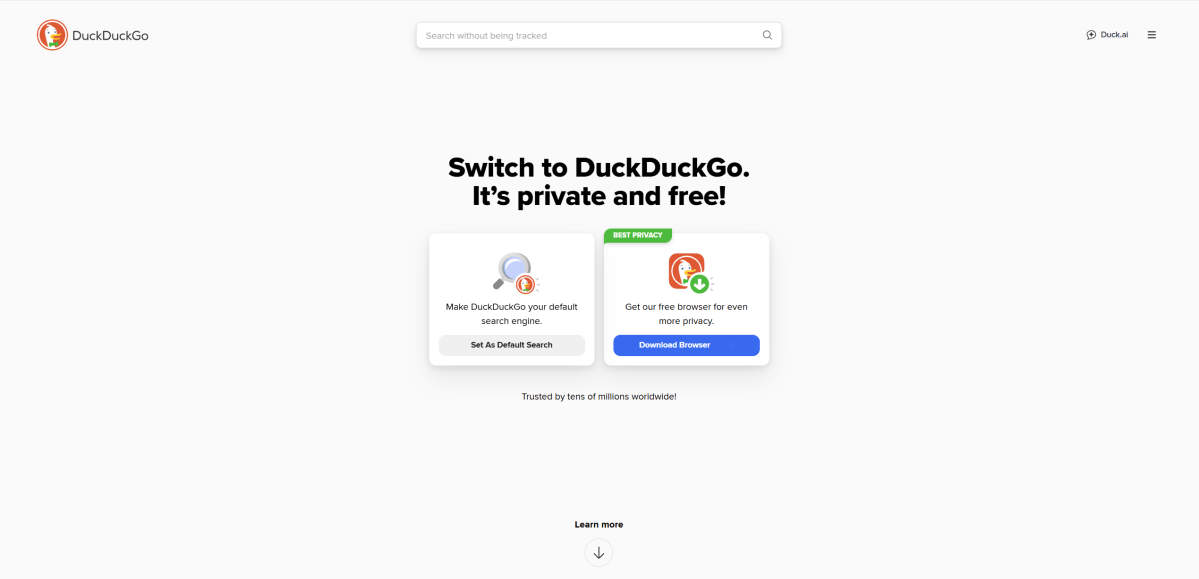
Sam Singleton
Google search delivers brilliant results—but it lets them look deep into your personal life. If you don’t want to be tracked while surfing, you can rely on search engines that take privacy seriously.
DuckDuckGo
DuckDuckGo is perhaps the best-known Google alternative. It completely dispenses with tracking, does not store IP addresses and still delivers solid results, especially for general search queries. No user profiles are created and no search histories are recorded. The results come from a mix of its own crawlers and partly from Bing, but occasionally with slightly less accuracy compared to Google.
- Pro: Pure data protection, quick and simple changeover from other search engines (also mobile).
- Cons: Fewer personalized hits, weaker results for niche topics.
Startpage
Startpage shows anonymized Google search results—without any tracking, cookies or personalized advertising. This means we get the usual quality of Google searches without our personal data being stored. The service originates from the Netherlands and is subject to European data protection standards.
- Pro: Best results with privacy.
- Cons: Slightly longer loading times, adverts in the mix (but they’re discreet).
Gmail? No thanks: Emails without readers
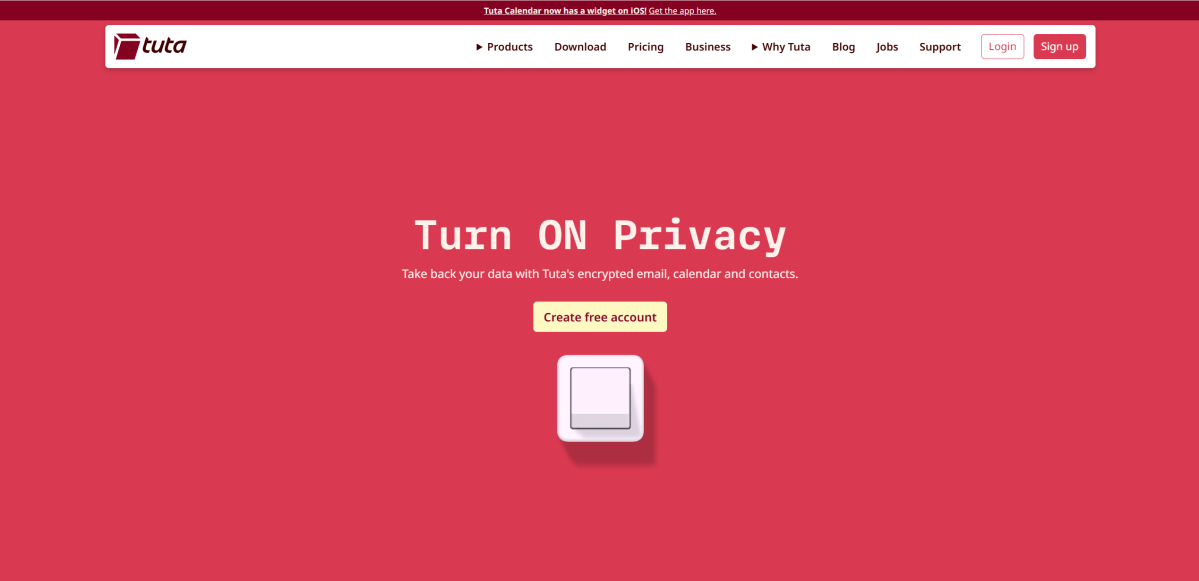
Sam Singleton
Google scans emails (usually automatically) to personalize advertising and services. If you prefer a more discreet approach, switch to a mail provider with a focus on security. Thankfully, we have plenty of choices, as Gmail is one of the Google services that is easiest to replace.
Proton Mail
Proton Mail is a secure e-mail service from Switzerland that consistently focusses on data protection. Emails between Proton Mail users are automatically end-to-end encrypted, and password protection can be set up for external recipients. The servers are located in Switzerland and are therefore subject to strict data protection laws. The web interface is modern and easy to understand, there are apps for Android and iOS as well as a bridge for classic mail programs.
- Pro: Strong encryption, servers outside the USA.
- Cons: Interface takes some getting used to, limited storage in the free plan.
Do without Android: De-Googling your smartphone
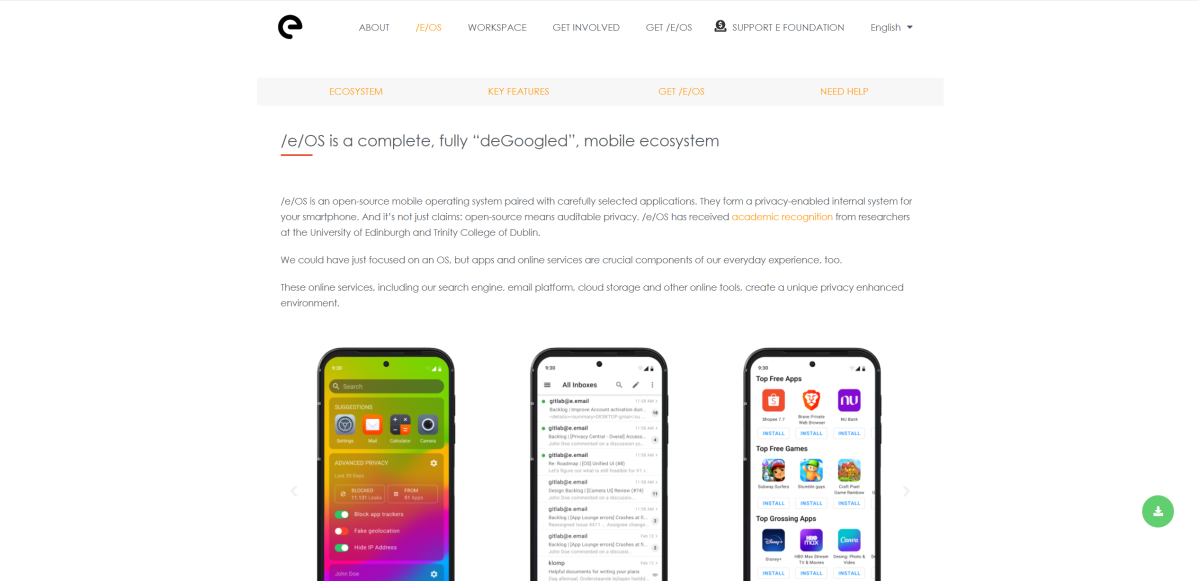
Sam Singleton
Android may be open source, but the Google services it contains are not. If you want a smartphone that is as “Google-free” as possible, you have to dig deeper into your bag of tricks—or try something completely new.
/e/OS
/e/OS is a privacy-friendly Android operating system that works completely without Google services. Instead, it offers its own apps, an alternative app store (Aurora Store) and synchronization via its own /e/ cloud. Many well-known smartphones (such as Samsung and Fairphone) can be reloaded with /e/OS or purchased pre-installed as a “de-Googled Phone”. It’s ideal for everyone who wants to use Android without being tracked by Google.
- Pro: Compatible with Android apps, many devices supported.
- Cons: Somewhat technical to set up, not all apps run perfectly.
GrapheneOS (for advanced users)
GrapheneOS is a particularly secure Android derivative that was specially developed for Pixel smartphones. It is aimed at experienced users and focusses on maximum security, system hardening, and data protection. Google services are not included as standard, but can be installed manually if required (sandboxed)—GrapheneOS is not designed for the “normal” use of Google services.
- Pro: Extremely secure, hardly any data leakage.
- Cons: For technology fans, not “plug & play”, requires some know-how and effort
Goodbye Google Maps: How to navigate with privacy
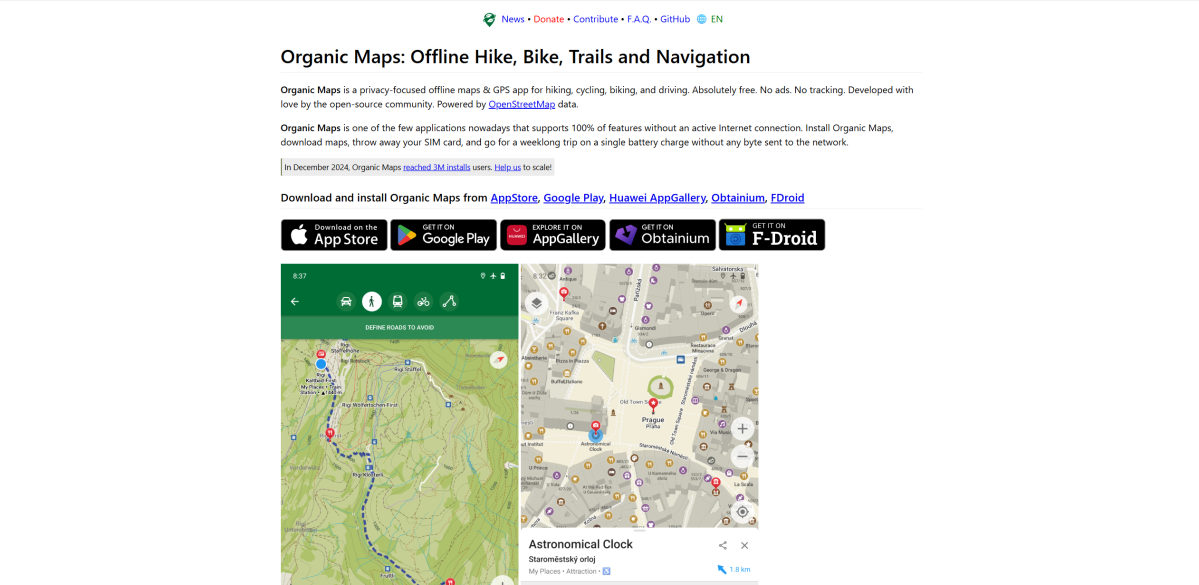
Sam Singleton
Google Maps knows our routes—oftentimes better than we do. Fortunately, there are alternatives for privacy fans that come with less prying eyes.
Organic Maps
Organic Maps is an open source navigation app that is based on OSM (OpenStreetMap) maps and works completely without an internet connection. The app does not use tracking or advertising, which makes it particularly privacy-friendly. Ideal for outdoor enthusiasts and anyone who wants to navigate reliably offline, Organic Maps also offers practical functions such as route planning and voice prompts.
- Pro: Works without the internet, ideal for travelling.
- Cons: No traffic data, weaker POI search.
Magic Earth
The Magic Earth map service combines OpenStreetMap data with its own maps and provides a privacy-friendly alternative to Google Maps. In addition to navigation, the app also offers real-time traffic information, offline maps and an overview of cycle paths and footpaths. With a focus on privacy, Magic Earth does away with user tracking and advertising, but remains functional and user-friendly.
- Pro: Good maps, many features, no data transfer.
- Cons: Less well-known places are sometimes harder to find.
Byebye Google Chrome: Fast, but nosy
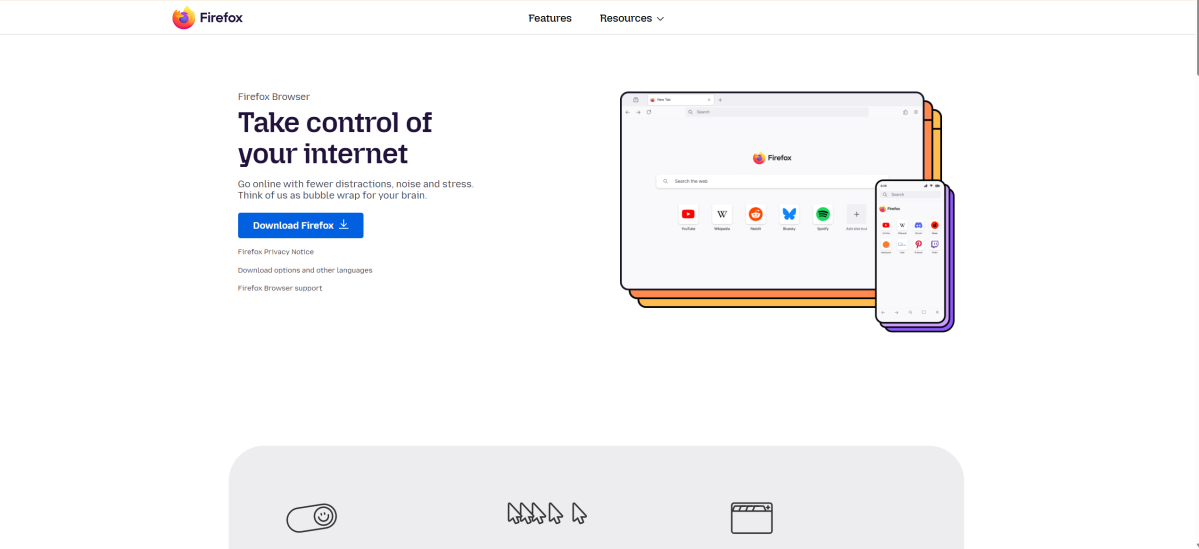
Sam Singleton
Chrome is the top dog among browsers, but it’s also a real data hoover. If you want to surf without being watched, you can switch to these alternatives:
Firefox
Firefox is the classic among free browsers—fast, secure, expandable. Developed by the Mozilla Foundation, Firefox places great emphasis on transparency and data protection. The browser is flexible and can be highly customized with numerous add-ons: from ad blockers to cookie control.
- Pro: Many data protection add-ons, active community.
- Cons: Sometimes a little slower than Chrome.
Brave
Brave is a Chromium browser with in-built tracking protection and ad blocker. It blocks adverts, trackers, and fingerprinting by default, even without extensions.
- Pro: Very fast, good privacy by default.
- Cons: Partial crypto integration, which not everyone wants.
No more Google Docs: texts and spreadsheets with better data protections
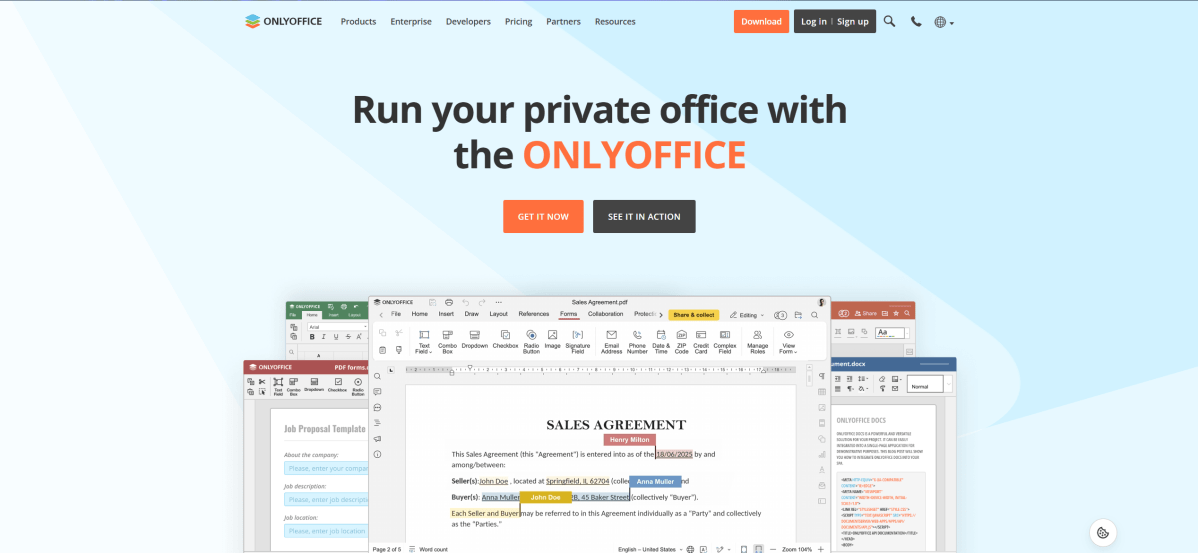
Sam Singleton
Practical, collaborative, usable everywhere: these are the strengths of Google Docs. But if you don’t want to store your documents on US servers, there are also good alternatives.
ONLYOFFICE
ONLYOFFICE is a powerful office suite that works with Word, Excel and PowerPoint-compatible documents and works both online and offline. The platform is particularly suitable for team collaboration and offers extensive functions for word processing, spreadsheets, and presentations. Compared to Google Docs, ONLYOFFICE offers more control over your own data, as the software can also be installed on your own servers.
- Pro: Compatible with Word, Excel & Co.
- Cons: Somewhat technical to get started (but easy to use in the cloud).
CryptPad
CryptPad is a web-based office suite that places particular emphasis on data protection and security by storing all data end-to-end encrypted. Users can work together on documents, spreadsheets or p
Login to add comment
Other posts in this group

For years, I never used the extra buttons on the side of my mouse, an

Electric vehicles (EVs) are clearly the future, but what’s available
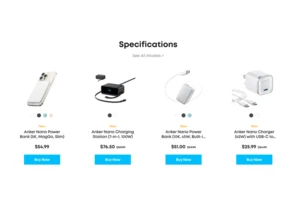
Anker remains one of our preferred sources of power banks, USB-C hubs

Stop us if you’ve heard this before: Microsoft encourages you not to

Who needs a smart home hub you can snag cheap Wi-Fi smart bulbs that


